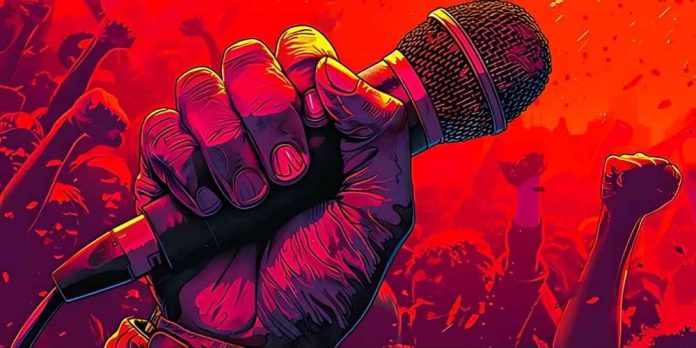
Music plays a vital role in politics. It energizes crowds and connects candidates with voters on an emotional level. In recent years, candidates’ song choices have sparked controversy, especially when artists object to their music being used for political purposes. As politicians use iconic tracks to shape their image, legal and ethical questions arise. This article explores how politicians leverage music in campaigns, the legal loopholes that allow it, and the ethical implications of ignoring an artist’s wishes.
The Power of Music in Political Branding
For decades, political candidates have carefully chosen songs that align with their messages. A rousing anthem or nostalgic track can create a strong bond with voters, helping define the candidate’s identity. Iconic songs like Bruce Springsteen’s “Born in the U.S.A.” and Fleetwood Mac’s “Don’t Stop” have become closely associated with U.S. political campaigns.
Today, politicians often turn to popular music to appeal to younger, more diverse audiences. For instance, Donald Trump used The Rolling Stones’ “You Can’t Always Get What You Want” during his 2016 and 2020 campaigns, despite the band’s objections. Music can rally supporters, but problems arise when artists feel their work is being misused to promote ideologies they oppose.
When Artists Disapprove: The Legal Loopholes
Candidates can use songs without explicit artist approval due to public performance licenses provided by Performance Rights Organizations (PROs) like ASCAP and BMI. These licenses allow venues and events, including political rallies, to legally play music as long as the venue holds the right license. This loophole enables campaigns to use copyrighted music without getting direct artist permission.
However, this legal structure doesn’t prevent backlash. Artists like Adele, Neil Young, and R.E.M. have taken legal action or publicly condemned the use of their music in political campaigns. In 2020, Tom Petty’s family sent a cease-and-desist letter to Trump’s campaign after it used “I Won’t Back Down” without permission.
While legal actions sometimes force campaigns to stop using specific songs, the system still allows campaigns to use music without fully considering the artist’s consent. This raises ethical concerns, especially when a song’s meaning is distorted for political purposes.
Ethical Considerations: Music and Ideological Misalignment
The ethical issues often center on ideological misalignment. Artists put personal meaning into their work, so when a campaign uses a song that contradicts the artist’s values, it creates tension between artistic expression and political messaging.
A famous example is Bruce Springsteen’s “Born in the U.S.A.,” a song that critiques America’s treatment of veterans and the working class. Despite this, candidates often use the song as a patriotic anthem, missing its deeper context.
Musicians frequently speak out against these misinterpretations of their work in politics. Neil Young protested Trump’s use of his songs, writing in an open letter, “I won’t allow this to continue…I don’t condone this kind of American ignorance and greed.” These statements reflect the frustration artists feel when their music is used in political campaigns they don’t support.
The Role of Public Perception
While legal loopholes allow campaigns to use songs despite disapproval, public perception often pressures candidates to change their approach. When artists publicly criticize candidates, media attention follows, leading to negative publicity. This can force campaigns to drop certain songs to avoid further controversy.
Social media amplifies this effect. Artists and fans alike can quickly express dissatisfaction, and the backlash can compel campaigns to rethink their song choices.
Conclusion
Music Industry Weekly recognizes that as campaigns continue using music to shape their brand, tension between candidates and musicians persists. Legal loopholes may allow campaigns to use songs without permission, but ethical concerns and public backlash are unavoidable. The intersection of music and politics reveals a broader cultural battle. Artists fight to maintain control over the meaning of their work, while candidates use music to connect with voters. Ultimately, the politics of song choice expose the complex relationship between artistic intent, legal rights, and the power of music in shaping public perception.